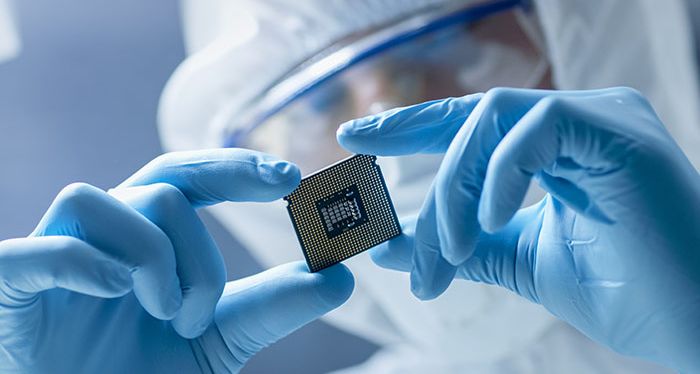Trillion Transistor Chips on the Way - Intel
Views, News & more

Intel has said it expects the number of transistors on chip 'packages' to rise from 100 billion to 1 trillion by 2030.
A trillion might catch the headlines but it's the ten-fold increase in processing power that should catch your eye.
A 10x increase in transistors over eight years will not be quite enough to uphold Moore's Law which suggests the density of transistors roughly doubles every two years. Part of that 900m increase in the number of transistors is expected to come from clever chip assembly methods rather than increases in transistor density.
Cramming More Transistors onto Chips - The Lynchpin of Faster, Cheaper Computing
Past successes at cramming ever more transistors onto chips were a major reason servers, desktops, laptops and mobiles got cheaper and more powerful over time.
If the gravy train of transistor miniaturisation comes to a halt, so will many of the price cuts and speed improvements we've come to rely upon, as the volume of data being processed continues to grow.
We need these chip improvements to continue, at least until quantum computing is developed enough to take over GPU-intensive tasks.
Intel is No Longer The Only Game in Town
Intel may have made the running on chip innovation during the 1980s and 1990s, but it has now got significant competition from fabless chip designers such as AMD and NVIDIA, and chip fabrication giants TSMC, Samsung and GlobalFoundries.
For example, Samsung plans to mass-produce 2nm chips in 2025 and 1.4nm ones in 2027. To put that in context, the most advanced iPhone at the time of writing - the iPhone 14 Pro - uses 4nm chips.
Chinese chip manufacturers have been catching up rapidly too, though some progress is alleged to be down to intellectual property theft rather than original research.
The competition to create increasingly powerful chips is only going to accelerate.
You're Going to Need Those 900m Extra Transistors
Computing is becoming ever more hungry for processing power as data volumes increase, networks get faster, and cybersecurity measures are rolled out.
Just look at some of the top enterprise technology trends: ZTNA - introduce a proxy that will use its processors to inspect, analyse and block network traffic. SD-WAN - adds a virtual layer to your network, with processing power being used to inspect, route and throttle network traffic. Cloud Computing - uses processing power to disaggregate and aggregate high-capacity servers, networks and storage arrays. In all cases, processors play a vital enabling role.
Chip innovations such as those predicted by Intel will help meet your growing needs while keeping cloud hosting costs down.
Green Benefits of Transistor Miniaturisation
Smaller transistors require less power, generate less heat and require less cooling. This has a significant environmental benefit and saves money.
As domestic energy-efficiency measures start to bite, don't be surprised if Governments force data centre operators to improve their energy efficiency - by law or by rationing new connections to the electricity grid.
The policy decision to ratchet up carbon offset prices will make offsetting a less commercially attractive way to achieve emissions reductions - causing firms to work harder to improve their energy efficiency. Processor improvements will potentially provide a cost-effective way to lower carbon emissions painlessly.
Moore's Law "Alive and Well"
Intel claims Moore's Law - named after its co-founder Gordon Moore - is "alive and well." Luckily for us, they are not far off. It may be slowing down slightly, but its essence remains valid. Every time you check your phone or use your computer, you're benefiting from the radical changes it correctly predicted.
While it's getting trickier to create ever smaller transistors, the alternative - creating working quantum computers - is no less challenging.
Don't write off Moore's Law just yet. We are all going to need its trillion transistor final act.
Get in touch
020 7847 4510
We may process your personal information in order to send you information you request, measure and improve our marketing campaigns, and further our legitimate interests. For further details, see our privacy policy.
Contact us
-
- Head Office:
- hSo, 50 Leman Street, London, E1 8HQ
- Switchboard:
- 020 7847 4500
- Support (24x7):
- 0333 200 3337
- support@hso.co.uk
- Marketing & Sales:
- 020 7847 4510
- info@hso.co.uk

















